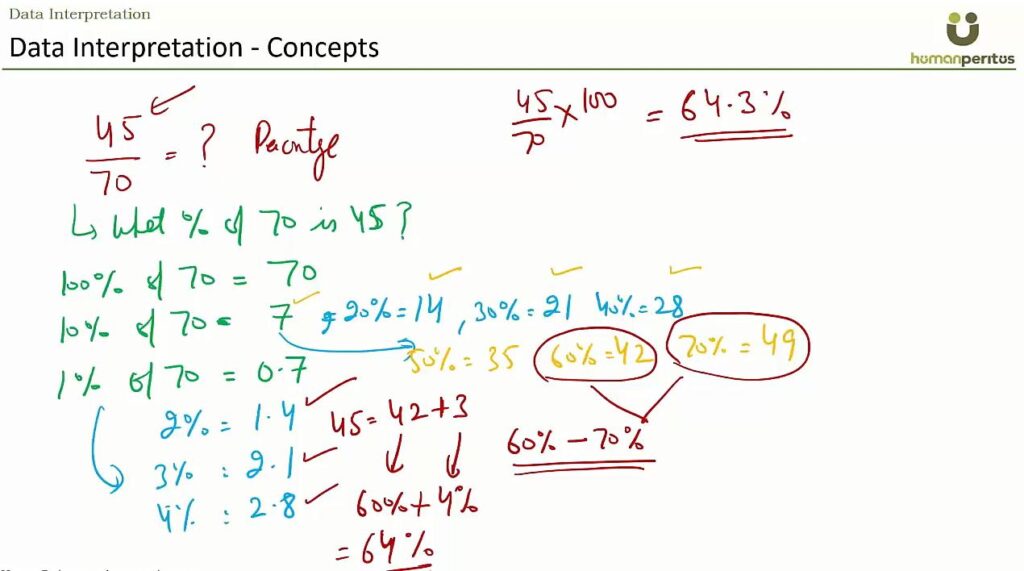Syllabus of Investigator Grade-I exam for Labour Bureau by UPSC 2023
The syllabus of UPSC exam for Investigator Grade-I for Labour Bureau 2023 has been discussed on this page. The UPSC will conduct a single written exam, which will have 120 objective-type questions of 2.5 marks each. There will be negative marking of one-third. The weightage of written and interview will be 75:25.
The UPSC released notification for the Investigator Grade-I on 21 October 2022 and the last date of form submission is 10 November 2022. The detailed notification can be viewed by clicking here.
The UPSC released another notification with the exam date and the syllabus of the Investigator Grade I. This can be downloaded by clicking here.
Syllabus of Investigator Grade I - UPSC
1. Composition of India’s population
demographic, social, economic and cultural factors affecting age-sex structure of population and its relevance in population dynamics, Levels, trends and differentials of mortality and fertility indicators.
2. Population ageing
concepts and measures of population ageing, components of population ageing. Trends and pattern of ageing in India and States
3. Demographic dividend & demographic rates and ratios.
4. Evolution and development of population policies and family welfare programmes in India.
5. Statistical methods of population analysis:
frequency distribution, descriptive and Inductive statistics, measures of central tendency (mean, median, and mode); measure of dispersion (range, variance and standard deviation); correlation and linear regression, introduction to testing of statistical hypothesis and test of significance.
6. Population surveys
meaning, scope, uses, limitations; major surveys: national sample surveys (NSS), reproductive and child health survey (RCHS), national family heath surveys
(NFHS).
7. Economic reforms in India since 1991
8. Time Series and Index numbers:
Definition and components of a Time Series, various Models, Measurement of Secular trend and Seasonal Variations, Uses of time series, Criteria of a good index number, Problems in Data collection and construction, Price and cost of living index numbers;
Base shifting and splicing, deflating of index numbers.
9. Design of Sample Survey
Sample and Population, Sampling Unit, Sampling frame, Sampling fraction, errors in a survey, Sampling with and without replacement, Simple random sampling, Stratified random sampling, Systematic sampling, Cluster sampling, Multistage sampling.
10. Quantitative aptitude and general mental ability.
11. Basic knowledge of computer applications. .
12. General awareness regarding Indian Polity, economy and society, physical geography, current events of national and international importance.
Do you know, Human Peritus is the most trusted guide for the Recruitment exams of the UPSC?
Want to have a discussion with Faculty on Investigator Grade-I exam....

Contact Us

Email: contact@humanperitus.com
Phone: 9717781110
Address: Human Peritus, Floor 5, Building C, Unitech Cyber Park, Gurgaon, 122002
Let us learn from success stories....
Sakshi Chugh- UPSC ALC 2017
Sanjeet Kumar- UPSC ALC 2017 exam
Bhupender Yadav- EPFO exam 2021
FAQs- Good to Read- Investigator Grade-I exam by UPSC
Conceptual Learning
Our Live Classes are not just 30,000 feet overview, but with detailed conceptual understanding spanning over 200 hours. Check out some of recorded classes to understand how we teach. (videos are given in the middle of this page).
Coverage of Syllabus
We ensure 100% coverage of Syllabus. With Human Peritus course, you need not touch any other book, not even previous years’ papers. Not even required current affairs. Nothing else. You can depend completely on us.
Smart Preparation
While on the one hand, we ensure 100% coverage and confidence of having more than 85-90% questions in the exam, on the other hand, we also ensure that you study only what is required for the exam. For instance, although you will study the Factories Act in only 14 pages in our booklet, still will have the confidence of facing any question in the exam, as if you have studied 74 pages of the published act.
Success Stories
Thousands of students have realized their dream with Human Peritus. Check out video experiences of hundreds of such students by Clicking Here.
Regular Updates
After every exam, we analyze, how many questions came from our course. Then we update our course accordingly (and this cycle continues with each exam). By doing it over the years, we have reached a stage, where consistently more than 85-90% of questions are from our course. In 2017 exam of UPSC ALC, out of 120 questions, more than 100 questions were from the course of Human Peritus. Check out Nov 2017 Exam Analysis, where we have mapped every question to its source in Human Peritus Course.
Online Question Bank
One of the key enablers to get you success is our Online Question Bank. Each of these 4000 questions is with not only answer but with a detailed explanation. It is Super Important to go through detailed explanation of every question (objective is not to assess you but to make you learn concept). This is the reason, why we repeatedly keep emphasizing that only reading our printed booklets is not sufficient. You MUST go through these 4000 questions.
These 7000 questions are further divided into around 70-80 subtopics. This gives you the flexibility to focus on only those areas, where you feel the need.
Since the inception of Human Peritus in 2011, our preparation approach has been quite traditional. First, we do a lot of research in analyzing the “boundary” of the syllabus by looking at PYQ’s. Then within that boundary, we provide “maximum possible coverage” of the concepts. What we do not do, is to try to find out what is more important or less important within that boundary. We study everything like a dedicated student. We make things “concise” but we don’t “leave out” things.
Firstly
We believe that nobody can guess important questions in objective exams (yes, we can identify some of the most repeating ones; but is that sufficient for cracking UPSC exam?….NO). The only way to secure prestigious job of UPSC is to cover the full syllabus within the boundary >> Then practice a lot of questions from that topic >> and you are ready for that topic. So, if you are enrolling with Human Peritus with the hope that we know important questions, which will come in the exam, DO NOT JOIN US.
Secondly
Like all the good things in the world, preparation takes time. We do not have any magical formula to cover everything in 1 month. We make a plan >> we follow the plan >> we expect you to do what we advise you >> and you are ready for the exam. If you do not have the time and patience of at least 3-4 months, DO NOT JOIN US.
Thirdly
Our Faculty members will only “teach” in class. Very less time is spent on “Gyan” or “motivation” or “making you like videos”. We understand that you are grown-up Post-Graduate students and we treat you like that. Our only objective is to give you the confidence of 100% coverage of the syllabus and teachers spend time on that only. If you are expecting classes to be full of “stand-up comedy”, DO NOT JOIN US.
Finally
Our approach has worked well in previous RT exams of UPSC like ALC, LEO, ESIC DD, EPFO, Admin Officer etc. And we are pretty confident that this “4 Step preparation plan” will work in coming UPSC Investigator Grade-I exam for Labour Bureau as well.
From a coverage point of view, the Study Material will give you 100% coverage, but the probability of selection is much higher (4 times) in video classes program, because of the following reasons:
(i) a Large number of topics require conceptual clarity, which will need a teacher to make it easier, like Stats, Numerical Aptitude, Computer Knowledge.
(iii) If it takes x hours to prepare without a teacher, then it will take only 0.4x hours with a teacher. Since time for Investigator Grade-1 exam is limited, you need someone to make it quicker for you.
(iv) You get into discipline because now someone else is pushing you towards completion of the syllabus (this is the biggest contributor)
(v) While teaching, the teacher explains how questions are framed from a given topic.
Our analysis says that the Current Affairs for RT exams of UPSC is quite static and theoretical. There is no need to teach it, as there is nothing conceptual. We expect that you should be able to understand and memorize by reading our printed booklets. Since the current affairs are factual in nature, the teacher does not add any value by reading that out in a class. You can read it yourself. In fact if you can cover 10 issues by self reading in X time, the teacher will be able to cover just 2-3 issues in X time.
Please note that, there is no need to refer newspapers or any other source for current affairs. You can completely depend upon us. Our booklets are sufficient. However, it is advisable to keep reading at least 1 newspaper, as it helps you in interview as well.
Although, our team, carefully packs the content, before despatch, sometimes, we may also commit mistakes.
If you find that, any booklet is missing or there are two booklets with same topic, there is no need to worry. Please write an email to us. Immediately, we will send you another courier with missing booklets.
Please note that, there is no need to panic. Our relationship with you does not end with despatch of courier. Our team will continuously assist you till exam time by (a) updating new content on online platform (b) handling your queries on any syllabus topic (c) we also do few free preparation tips classes in last 2 months of exam.
We have assisted students for many recruitment exams of UPSC like UPSC ALC, EPFO, Admin officers and have good experience with UPSC Recruitment exams. After analyzing at least 17-18 recruitment exams of UPSC, we can see that, there has not been even a single exam which has been conducted in 3-4 months, from last date of application. The minimum time is 5 months and average time is 8-9 months. You might look at some examples:
UPSC ALC- Last date of application: Dec 2016, Date of exam: Nov 2017
UPSC LEO- Last date of application: Mar 2017, Date of exam: Nov 2017
Sr Admin Officer DRDO- Last date of application: Sep 2015, Date of exam: May 2016
Sr Admin Officer DRDO- Last date of application: Dec 2014, Date of exam: May 2015
Admin Officer BRO- Last date of application: Sep 2018, Date of exam: Aug 2019
Admin Officer GSI- Last date of application: Apr 2018, Date of exam: Sep 2019
UPSC APFC – Last date of application: June 2015, Date of exam: Jan 2016
Considering the availability of RT schedule of UPSC and previous history, our best guess is that this exam will not be held before May-June 2023. You should be getting preparation time of “at least” 5-6 months.
If there is any change in the syllabus, it is our responsibility to support you with additional content. We will support you fully till the exam day.
Please note that, our team might need some time to develop the content, in case some unexpected keywords appears in the syllabus. But our best guess is that it should not be more than 1 or 2 keywords of the Syllabus.



